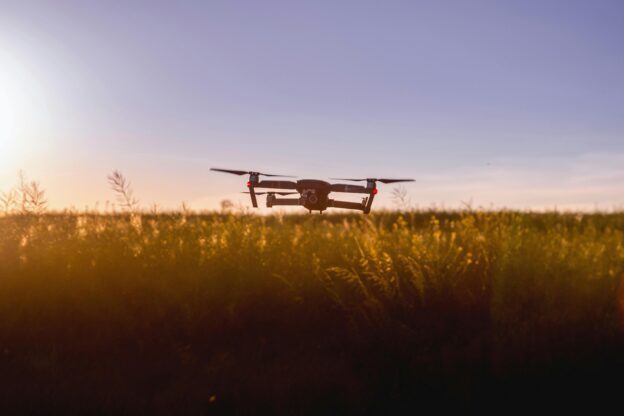Drones and autonomous flight technologies are set to revolutionise how we travel, deliver goods and produce food, and the government has taken note. As part of a comprehensive three-year review into the regulatory framework of autonomous flight and the use of drones, the Law Commission has launched a second consultation. Its three-year review is nearing completion with recommendations expected to be published by early 2026 and will shape how this fast-moving sector evolves. For innovators in agri-tech and beyond, the opportunity to help design the rules that will govern a sky filled with commercial drones is now.
Flying free from EU constraints
Legislative agility to facilitate innovation is the ambition and ties into the government’s wider economic growth agenda. Aviation law in the UK is prescriptive and duly geared towards the passenger aviation sector. With the UK no longer bound by EU aviation rules, policymakers can now craft a more bespoke, agile regulatory environment that encourages experimentation, accelerates innovation and attracts investment.
However, the government has identified a possible post-Brexit dividend as the current regulatory regime is largely a carryover from current EU law. This presents a unique opportunity to break away from legacy constraints and design a tailored regime for UK-specific innovations and ambitions. A more flexible regime could fast-track the safe deployment of cutting-edge drone technology and give UK-based companies a first-mover advantage, enabling them to export innovations globally.
Drones on farms: Unlocking agri-tech potential
Commercial applications of drone technology are wide ranging. For the food and agriculture sectors alone, drones could revolutionise farming operations:
- Precision agriculture from monitoring crops based on thermal sensors to scanning fields and accurately predicting crop yields.
- Agricultural sprays deploying pesticides, fertilisers and herbicides thereby reducing labour costs, use of chemicals and their environmental impacts, and identifying diseases or pests to prevent wider outbreaks.
- Irrigation management by identifying drainage issues to drought-stressed areas and enabling the more efficient use of water and real-time crop water requirements.
- Crop insurance and assessment by providing accurate, unbiased and detailed imagery required by insurers to speed up claims processes.
- Harvesting assistance by providing crop maturity assessments to more effectively plan harvesting schedules and boosting the quality of crop yields.
- Forestry and orchard management by measuring canopy growth, quantifying tree populations and aiding pruning schedules.
The economic case for drone-powered agriculture
There are many economic benefits – from reduced labour and input costs through more precise allocation of resources, to increasing crop yields via data driven decision making. Lower chemical and water usage not only cuts costs but also supports environmental sustainability. For businesses able to make the capital investment, drone technology is set to become a core component of modern agricultural management, policymakers should be engaged on this.
Government support signals lift-off
There is clear momentum in government to embrace drone technologies. The aviation minister has confirmed £20 million in funding for new flight technologies, including £5m earmarked for the Future of Flight Challenge. These initiatives could create government-backed testbeds for agri-tech solutions and help de-risk businesses ready for investment. For innovators in the sector, this is a moment to engage directly with policymakers, to shape the regulatory framework and unlock the commercial potential of drone led farming. The Law Commission’s second consultation is open until 18 July 2025, and alongside a wider engagement programme, this is a key opportunity to have your voice heard and set the direction of travel for the sector.

